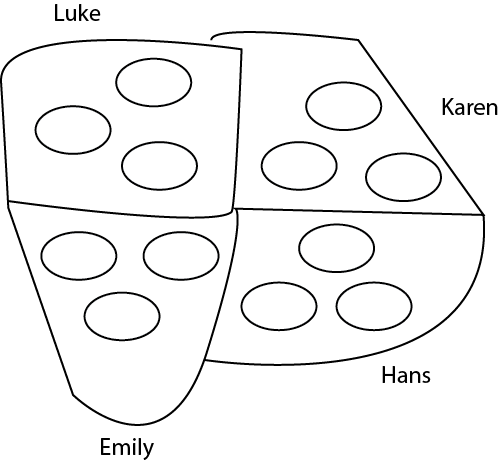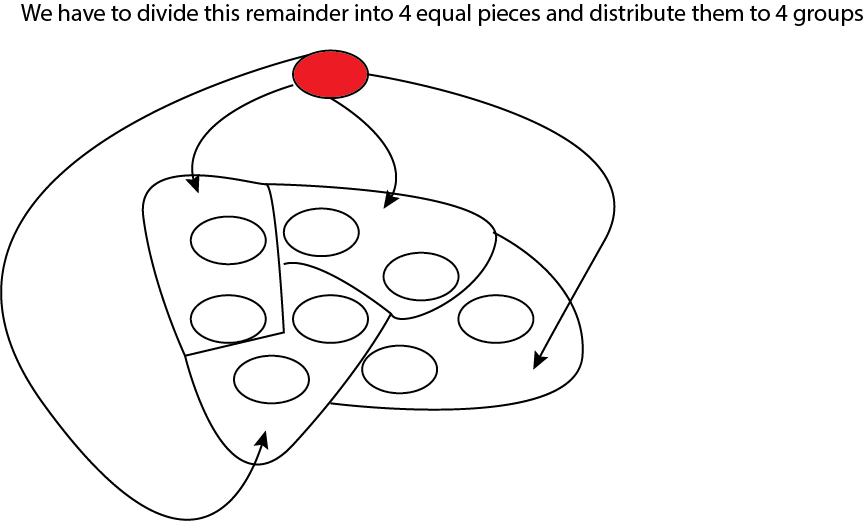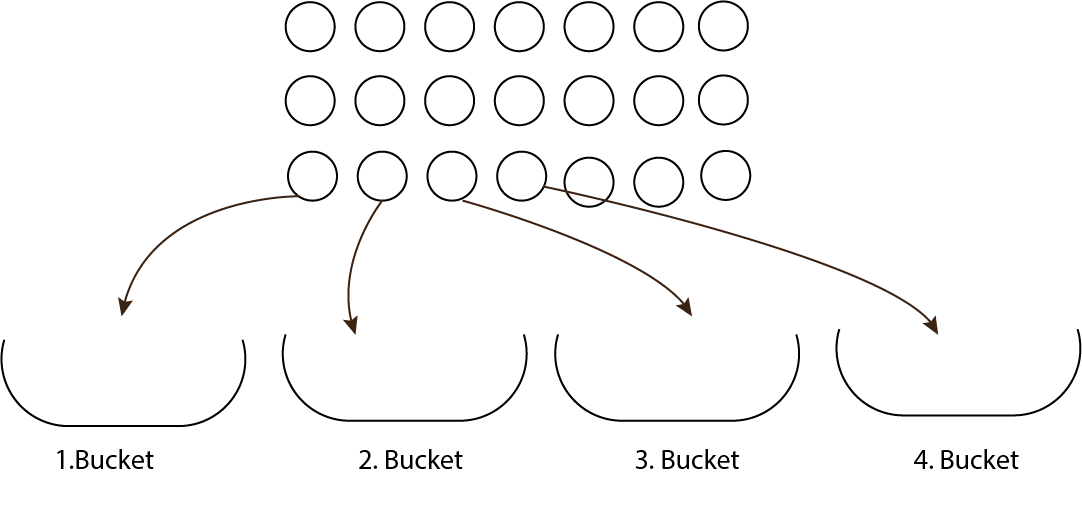The Meaning of Division
How many groups can I form with the same amount in each group? Or when we want a certain amount in one group, how many groups can I get?
Imagine distributing 36 balls into buckets (the buckets represent the groups). You can equally distribute 36 balls into 3 buckets, or 4 buckets, or 6 buckets, or 12 buckets, etc. The number of your balls in each buckets will vary according to the number of balls. The number of buckets is entirely up to you. Similarly, you can specify that each bucket must contain 4 balls, or 6 balls, or 9 balls, etc. In this case, the number of your buckets will vary according to the number of balls in each bucket.
1) Equal Grouping
If you have 12 apples and you want to split them equally into groups of 4, you would end up with 3 groups
3 Groups - 4 apples at each group
2) Equal Sharing
Similarly, if you have 12 apples and want to share them equally among 4 people, each person would get 3 apples.
4 group - 3 apples at each group.
Remainder
It's important to note that in the world of natural numbers, division doesn't always result in a natural number. For example, if you try to divide 9 by 4, you'll end up with a quotient of 2 and a remainder 1.
9 divided by 2 creates 4 groups, with 1 as the remainder. We couldn't place the 1 remaining apple into any group, because division represents 'equal grouping'.
Can't we divide the remainder ?
Yes, we can! We can distribute the remainder into groups, and in doing so, we obtain a Fraction.
Fractions are just a pieces, not wholes. Learn more about Fractions >>
In school, you learn division step by step. In the early years, you first divide natural numbers, which is to say, you perform division with a remainder. You write the remainder as it is.
After learning fractions in later years, you learn about decimals. With this, the concept of the remainder is removed and any number can be divided by any number completely, enabling you to obtain equal groups.
Can remainder be equal or greater than divisor ?
If you're asking this question, it means you might not have fully understood the concept of division. Please read through the explanation again and think about it. If you're still having difficulty understanding, let's take another look;
Let's consider dividing 21 into 4 groups, ( 4 being the divisor ) here. Could 7 be the remainder ?
Place each ball into the boxes in order, and remember, each box must contain an equal number of balls.
I have seven balls left, in fact, even more, but I can still continue placing the balls.
The placement of balls, in other words, the grouping is done. We have 5 balls in each of our 4 groups and 1 ball is left over. In this example, we have 1 ball left, but at most we could have 3 balls left, because if I had 4 balls, I could share them into the 4 buckets again.







Comments
Post a Comment